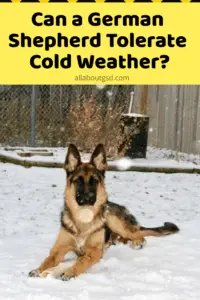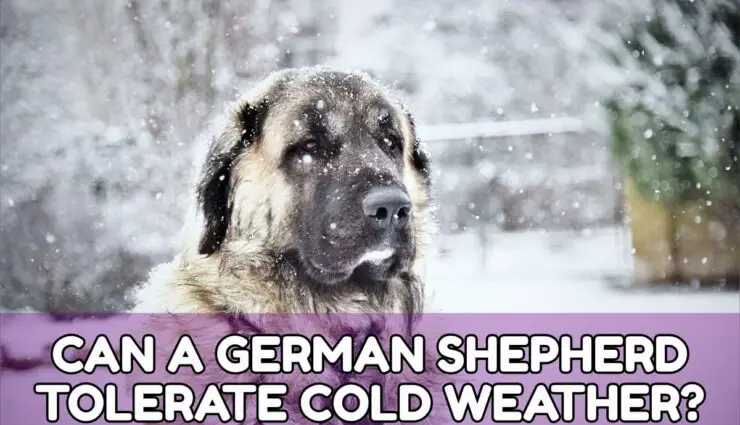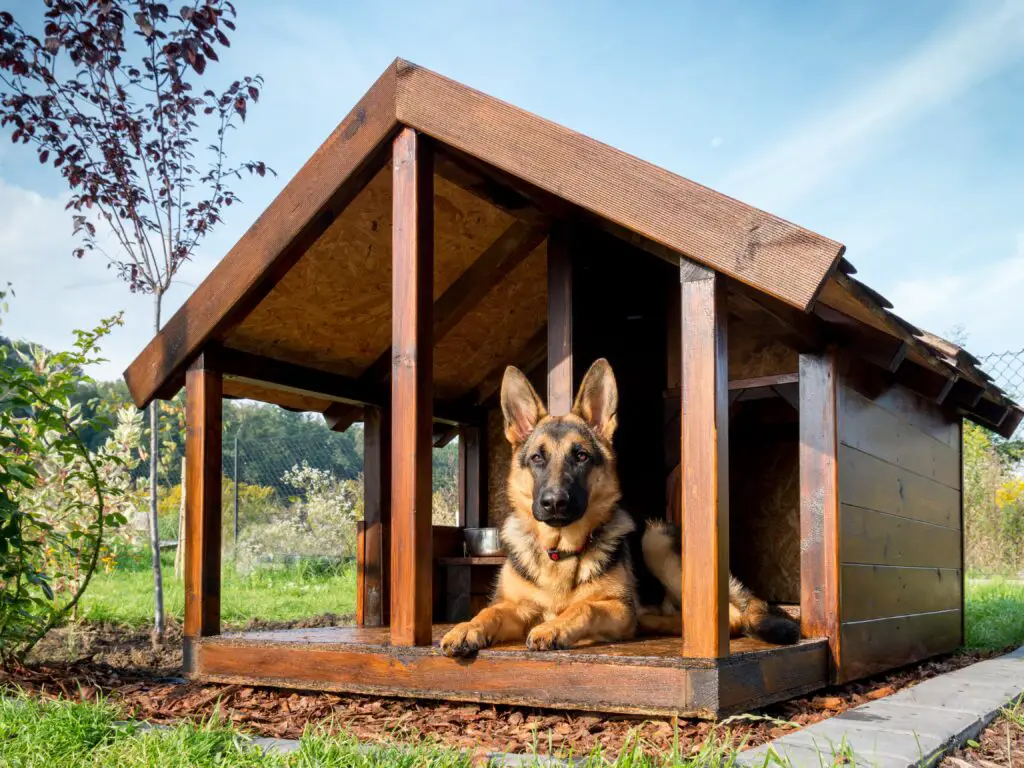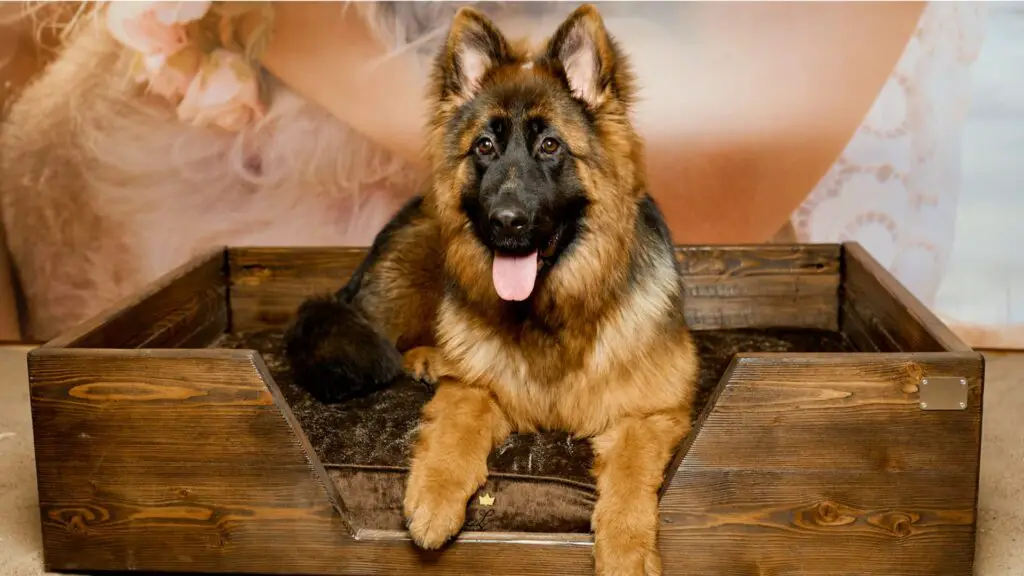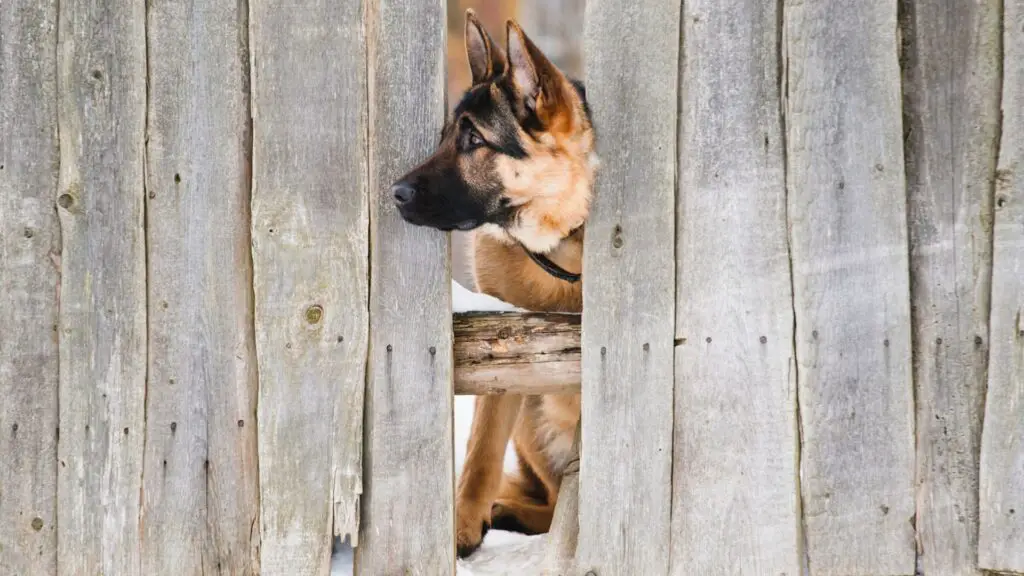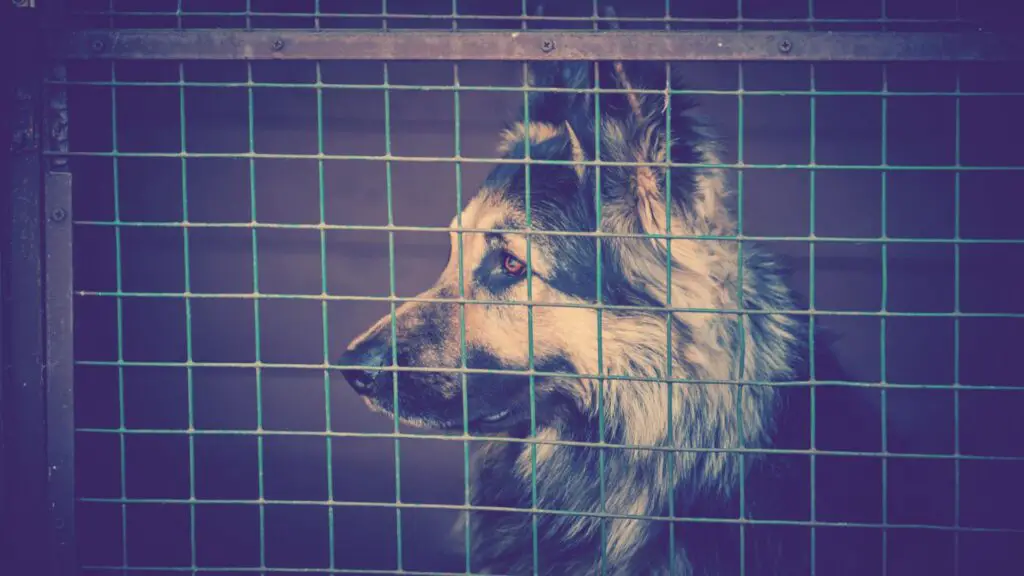The German Shepherd is an intelligent dog breed with a host of remarkable skills under its paws. Its versatility makes it the second popular dog breed in the USA.
Besides its skills, this dog has some striking features that are easier to distinguish. Its fuzzy double coat and a wedge-shaped head with erect ears.
With one of its remarkable features being its double coat, many pet enthusiasts wonder whether a German shepherd can feel cold or even tolerate the cold weather.
So, during the cold season, can you leave your German shepherd to sleep outside? Can it survive in those freezing temperatures?
Well, let’s dive in and have a look.
The German shepherd is an intelligent dog breed with a host of remarkable skills under its paws. Its versatility makes it the second popular dog breed in the USA.
Besides its skills, this dog has some striking features that are easier to distinguish. Its fuzzy double coat and a wedge-shaped head with erect ears.
With one of its remarkable features being its double coat, many pet enthusiasts wonder whether a German shepherd can feel cold or even tolerate the cold weather.
So, during the cold season, can you leave your German shepherd to sleep outside? Can it survive in those freezing temperatures?
Well, let’s dive in and have a look.
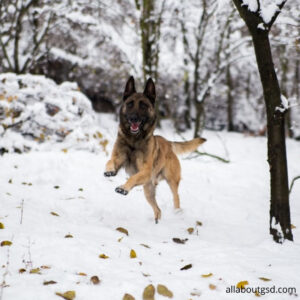
Can a German Shepherd Tolerate Cold Weather?
The German shepherd has a double coat that enables it to tolerate the cold weather. Never leave your German outside for a long duration during the cold seasons even though it has a double coat.
Leaving your German shepherd outside for long in cold temperatures exposes it to frostbites and hypothermia. Temperatures of below -10 degrees Celsius can spell danger on your German shepherd.
Signs That Your German shepherd Might Be Feeling Cold
Even with its size and perfect body structure, it will hit a point whereby your dog won’t be in a position to handle the freezing temperatures.
Here Is A Compilation Of Cues That Will Help Tell That Your Dog Is Getting Cold.
Shivering
Similar to human beings, dogs also shiver when the temperatures get below 40 degrees Fahrenheit.
Involuntary movement of muscles causes shivering. Such a reaction helps in the generation of warmth.
However, shivering is also a dog’s body language to exhibit excitement. Thus know how to distinguish when your dog is excited or freezing to the core by checking out for the next signs.
Whining and Howling
If left for long in the cold temperatures, it will reach a point whereby your dog won’t handle the fall in temperatures anymore. Thus the dog will start whining or yelping as the freezing temperatures become unbearable.
Note; don’t let your dog stay for long in the freezing temperatures.
Lethargy and Stiffness of Muscles
How is the weather outside? Does your German shepherd look dull? And is he even reluctant to play? Then perhaps your dog is on the verge of hypothermia.
You will also find your dog coiled up like a doughnut and the tail tucked inside in a bid to conserve energy.
Raised Hackles
Also known as piloerection. It’s an involuntary reaction similar to goosebumps in human beings whereby the hair along the backline stands up.
Piloerection help conserve the available body warmth.
The above are some of the signs to watch out for in your dog.
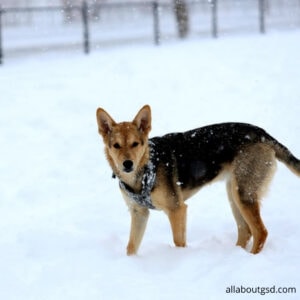
How to Keep German shepherd Warm during winter?
There are lots of measures you can take to keep your German shepherd warm and happy during the freezing temperatures.
Make the Kennel Comfortable
If your dog is comfortable staying outside, you can keep its kennel comfortable by either.
Get a Comfortable Dog Bed
Don’t let your lovely German shepherd lie on a worn-out piece of a blanket in the name of a bed. It’s harsh for the dog.
You can get a comfortable bed from eBay or Amazon for your GSD to lie on during these harsh weathers.
Construct a Well-Raised Kennel or Get an Elevated Bed
The latter is the best; get an elevated bed. An elevated bed will lose less heat as compared to a grounded bed.
Get a Thick Blanket
Unlike during the summers, a thick blanket will be of importance during these cold temperatures.
The good thing is that these blankets are cheap and readily available. As a responsible dog owner, it’s time to show your dog how you love and cherish it during these such harsh times.
Other measures that you can use include:
Getting Some Dog Boots
These boots help in protecting the paws and still help in conserving the heat. Quite a good intervention if your dog accepts to stay on them.
If it’s the dog’s first time, you can train it on how to walk and stay in boots.
Wax the Paws
If the dog is not comfortable with wearing the boots, then you can apply paw wax. Paw wax help conserves warmth for the dog during the winter sessions.
Waxing the paws also help protect the dog from harsh snow and antifreeze that may irritate its paws
Note: don’t trim the dog’s fur during this period, as by doing so, you will expose its skin to harsh cold temperatures.
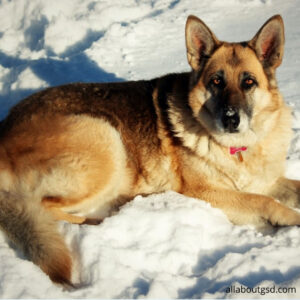
Some Tips for Keeping Your Dog Safe During The Winter
If though the German shepherd is a resilient dog breed “almost immune” to freezing temperatures, here are safety tips you should adhere to during the winter.
Sufficient fresh water
Did you know that dogs are most likely to get thirsty during the winter than the summer? Thus ensure availability of water although during the cold season.
However note, regular changing of water is necessary. Not unless you want your dog to drink ice cold water. Do you?
Keep the dog away from antifreeze and salt.
Antifreeze and salt are essential during the cold season as they help melt the snow. However, if you own a German shepherd, caution is needed. If ingested, the antifreeze can turn out to be poisonous on your dog leading to gastric obstructions.
Additionally, your dog is at risk of getting its paws hurt if it steps on the salt-as salt tends to corrode its paws.
Consider getting you German shepherd boots, if you are to go for walks with it.
Food and more food
You wouldn’t want your German shepherd to starve during the winter. Ensure your dog consumes food with plenty of proteins. Food rich in proteins ensures that there is a consistent production of energy for the dog. And it’s vital during the winters.
Final thoughts
There you go, you are in a better position to understand whether a German shepherd can tolerate cold weather.
Additionally, there are some of your German shepherd dog’s body language you should watch out for during the cold seasons.
Overall, even with its double coat and resilient nature never leave your German to sleep outside the freezing temperatures, whether at night or daytime.
Related Questions
Are German shepherds sensitive dogs?
The German shepherd, like other dogs, requires to be handled with love and affections. Besides being handled with care, it needs some behavioral training while still a puppy.
If not so, your German shepherd can turn out to be a sensitive dog. Owners should learn how to understand their dog’s body language.
Lack of understanding of its body language will make this dog sensitive thus leading to aggressiveness.
Can I Leave My German shepherd In the Car during winter?
It’s risky to leave your GSD in the car during the cold weather. The reason being the temperatures may drop down inside the vehicle, thus exposing the dog to hypothermia.
Be cautious, never lock your dog inside the car whether it’s during winter or summer.
